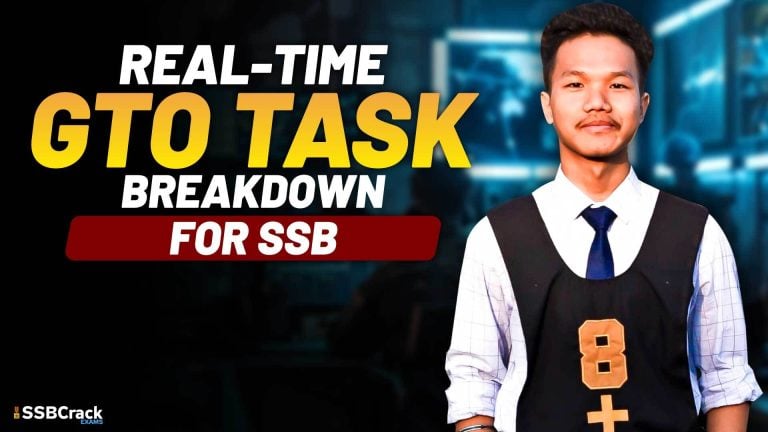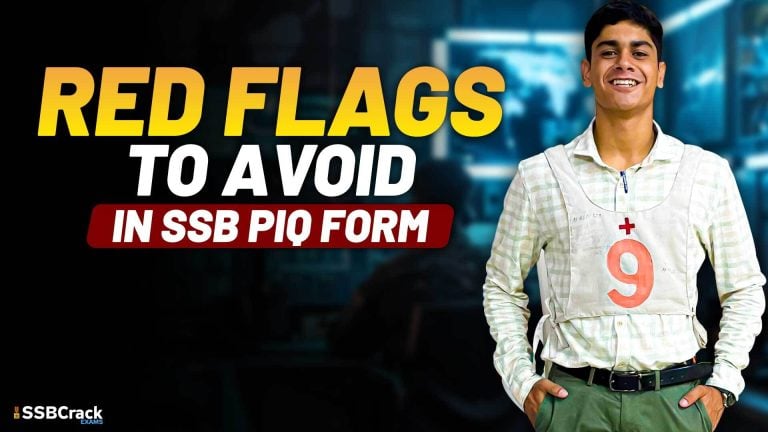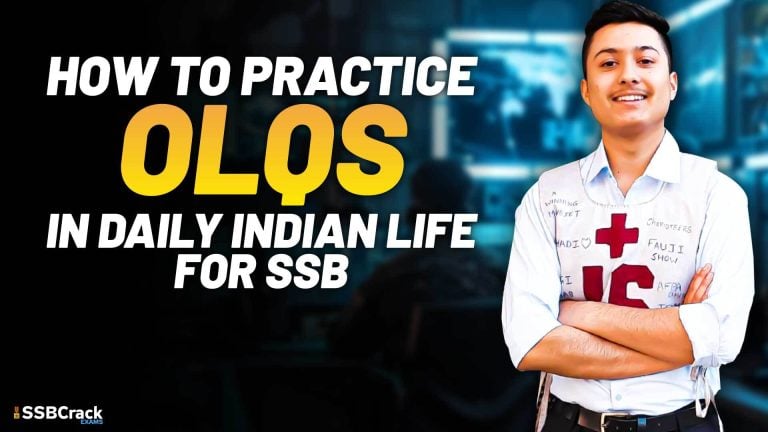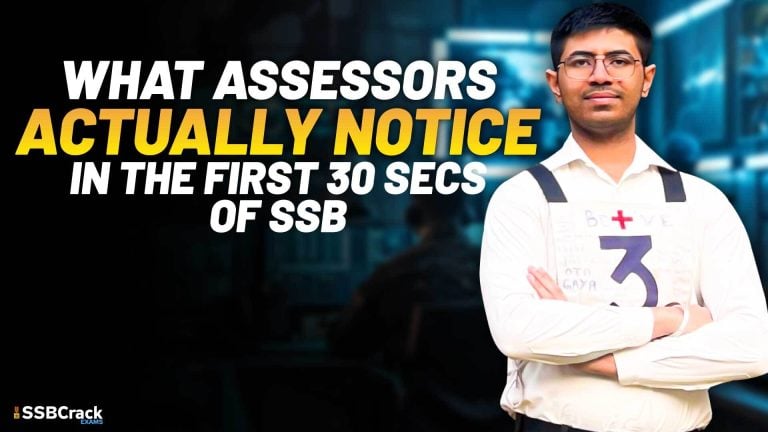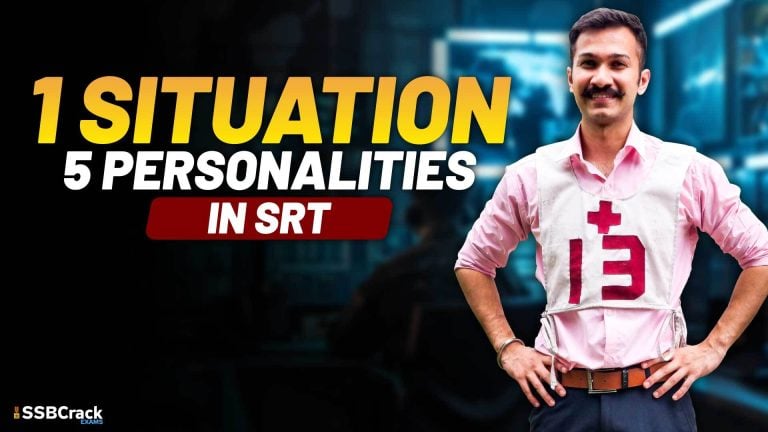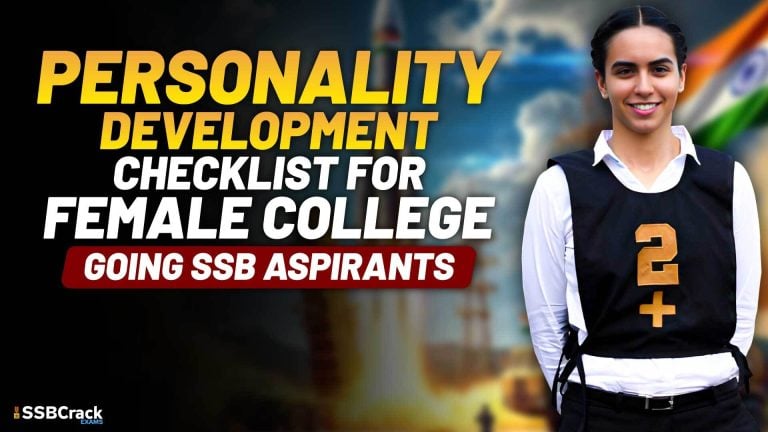The psychological tests are administered on the second day of the 5-day testing schedule that takes place at the SSB. These tests are based on very scientific procedures of assessing the qualities of a candidate, at his/her subconscious level and the non-conscious state of mind. The primary aim of these tests is to assess the potential of a candidate in terms of qualities or personality traits that are desired in a potential officer candidate. The tests are required to be written against the constraint of time. Hence, the candidate is unable to hide his true feelings and the psychologist is able to read the actual personality of the candidate while he/she gives his/her responses in terms of thoughts, feelings and actions.
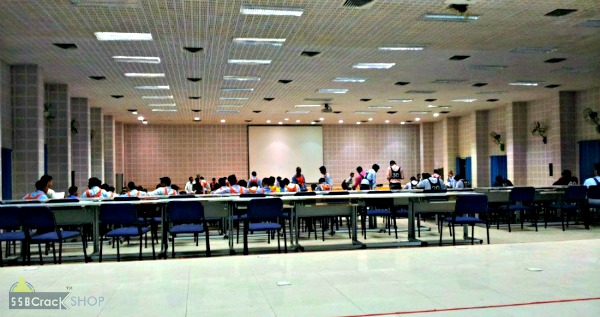
The four psychological tests that all candidates are put through during their SSB are as follows:
• Thematic Apperception Test (TAT)
• Word Association Test (WAT)
• Situation Reaction Test (SRT)
• Self-Description Test (SDT)
Personality assessment conducted in SSB is based on the science of Psychology. Psychology is not an absolute science, unlike the physical sciences known to us. It implies that there are not always absolute and definite “yes, or no” answers to problems, or situations. There will be a difference in the responses of different people in accordance with their nature and psychology. The battery of psychology tests conducted in SSB is based on Projective technique. Assessment of an individual is done based on the entire written tests & not in pieces, like a separate assessment of WAT, TAT & SRT. The personality of an individual is one whole. The various inputs help to construct it.
The below-mentioned points are mentioned in order to give the defence aspirants insights about the psyche tests and the methods to approach them during or before testing in SSB Interview process.
Thematic Apperception Test (TAT)
You will be shown 11 black and white pictures and the (12th) is a blank slide. Each picture will come just for 30 seconds and then disappear. You will get 4 minutes to write the story based on that picture. After 4 min another picture will come for 30 seconds and the same process will be followed till the last slide i.e. blank slide. The Thematic Apperception Test is designed to test the thoughts and imagination of the candidate.
Some pictures in TAT show problems which require urgent resolution like accident, fire, theft, drowning and so on. In such photos the scope for imagination is limited and most candidates are expected to resolve the problem shown with minor variations in their- understanding of the situation, urgency, priorities, and sense of responsibility. Some photos depict no problem at all. Such photos offer much greater scope for imagination. The story of a candidate will provide greater insights into his thoughts and imagination as compared with the ‘problem resolution type’ of photos.
In the blank photo, individuals will write totally based on their imagination because there is nothing at all to guide their thoughts. Individual stories will naturally vary the greatest and will be the purest reflection of an individual’s imagination. Blank photo is to elicit a response based totally on individual’s imagination. Candidates should resolve the problems depicted in the pictures depicting problems as per correct priorities. Do not write pre-planned stories because the assessors will be able to distinguish this easily and may even have a negative impact.
Use imagination well to write meaningful stories in the photos offering greater scope for imagination, including the blank photo. Write practical and realistic stories that come to your mind on seeing the picture and takes place around you. The main character should be proactive and do something for the betterment of the existing situation.
Word Association Test (WAT)
You will be shown 60 words back to back; each word will remain on the screen for 15 seconds. In 15 seconds you are required to write a sentence which comes to your mind first after reading that word. Likewise, you have to write 60 sentences continuously without any pause in between.
Only the spontaneous and stimulus-based response is consistent with the personality of the candidate. The psychologist analyses the complete responses to construct an all-inclusive and consistent personality of the individual. Many candidates mistake this test for a sentence making test, rather than a word association test and hence, falter in the very approach to this particular test.
Situation Reaction Test (SRT)
You will get a booklet with 60 situations written on it. You are required to write your responses based on those 60 situations. Time allotted will be 30 min. These are real to life situations, which you may encounter in your day to day life. These are given in a Booklet, in the form of statements which you have to complete by giving appropriate reactions. Due to a constraint of time, you will generally give a response, which would be close to your actual reaction, while facing a similar situation in real life.
Answer spontaneously but by imagining yourself in those situations as those are the situations which many of us faces during the course of our life. The main character in the situations should be a leader, who should try to resolve the problems proactively for the betterment of everyone and not wait for things to happen.
SD Self-Description Test (SDT)
You are required to write an opinion about you from your parents, friends, teachers and yourself, and things which you would like to develop in the future. Time allotted will be 15 min.
The Self-Description entails asking the candidate to write down, as to what, in his/her opinion the following people think about him/her:
1. Your parents
2. Your teachers
3. Your friends
4. You yourself
The candidate is required to write down his/her own opinion about what the people mentioned in all the above categories think about him/her. Both, the positive aspects of his/her personality and the areas that he/she feels need to be improved are required to be mentioned in three to four lines for each category. You should go prepared. Write the truth. Opinions of others, as well as yourself about you, are basically a brief about your strong and weak points. The strong points should be more than the weak points. In case the reverse is true, it shows that you have not taken enough action to improve yourself, despite being aware of your weaknesses.
Your description should be an emphasis on such points that reveal and reflect the traits of your personality. Do not fake it. Gather actual and true opinions from your parents, teachers/employers, friends/colleagues. Talk to them and ask what they think about you, their perspective and impression about you. You can use the Johari Window concept for better understanding of this testing process.
You can prepare for defence entrance exams such as NDA, AFCAT, INET, and CDS by taking Written Online courses as they will not only give you access to full-length quality lectures but will also provide the facility to take standardized mock tests for better study and strategic growth in the exam. You can take multiple quizzes after each lesson to ensure the full understanding of the subject along with creating your customized lesson plans. You can check out the course content along with other important specifics at SSBCrackExams.
You can also access them through the SSBCrackExams App available in the google play store.
Jai Hind
